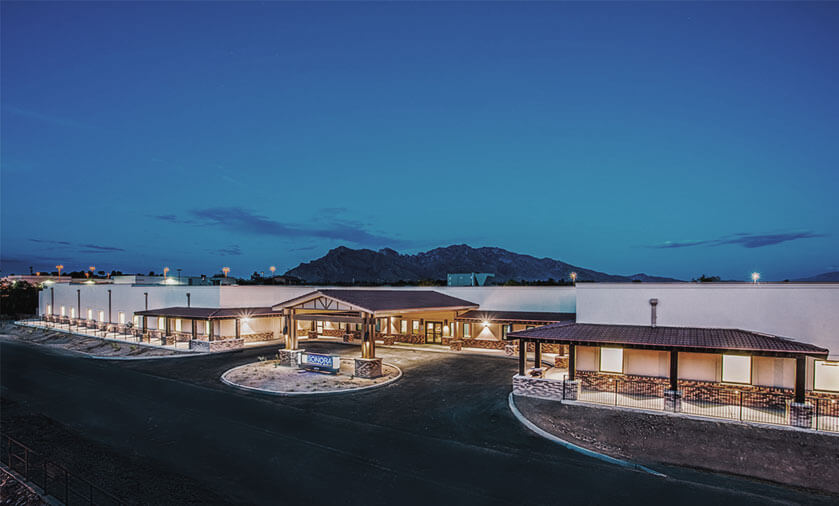Alcohol abuse is defined as the use of alcoholic beverages to the extent that individuals are causing harm to their health, their interpersonal relationships, or their ability to complete work.
Understanding Alcoholism
Learn More About Alcoholism
This pattern of harmful drinking continues despite the negative consequences that are occurring in their lives. If an individual continues to abuse alcohol it can lead to an addiction, which is a chronic illness that is extremely difficult for an individual to overcome. When individuals become addicted to alcohol, the substance quickly starts to control all aspects of their life. These individuals will experience disturbances in their ability to function appropriately on a daily basis and their use will impact their ability to keep up with their responsibilities and obligations.
Statistics
Statistics of Alcohol Abuse
In the United States, an estimated 8.5% of individuals over the age of 18 abuse alcohol. Research has shown that men are known to abuse alcohol in greater numbers than women, and the risk of alcohol dependency onset is believed to peak between the ages of 18 and 29. Amongst adolescents, alcohol is said to be the most commonly abused drug, surpassing both tobacco and illicit drugs.
Causes and Risks
Causes and Risk Factors of Alcohol Abuse
There are a variety of different factors that can contribute to an individual developing a drinking problem, such as the surrounding environment, social pressure, problems at work or school, cultural norms, and genetics. The most common causes include:
Genetic: Alcohol abuse and dependence is often called a family disease because it tends to run in families. Research has shown that people are three to four times more likely to start using alcohol if they have biological family members who drink alcohol and are addicted to it. Additional research has shown that between 40% and 60% of one’s susceptibility to developing alcoholism is due to genetic influences.
Physical: Chemical changes occur as a person begins excessively drinking alcohol, which leads to tolerance and dependence. The longer that a person abuses alcohol, the greater the chance that there will be disturbances in brain chemicals and nerve tracks. These imbalances will affect a number of different areas of one’s brain, including the ability to use sound judgment and exercise self-control often resulting in a lack of being able to gain control over his or her drinking.
Environmental: An individual’s surrounding environment can have a large impact on whether or not an individual will develop an alcohol abuse problem. Things such as peer pressure, difficulties expressing feelings, or traumatic events like job loss or the loss of a loved one, can all put an individual at a higher risk for developing an addiction to alcohol. In many instances, an individual going through difficult circumstances will use alcohol as a coping mechanism to deal with unwanted feelings and emotions.
Risk Factors:
- Being male
- High levels of stress
- Relationship problems
- Unemployment
- Family history of substance use
- Family history of mental illness
- Personal history of mental illness
- Low self-esteem
- Poor socioeconomic status
Signs and Symptoms
Signs and Symptoms of Alcohol Abuse
It is not always easy to detect a drinking problem or to determine if someone’s drinking is considered abuse instead of social drinking, but there are some signs that can indicate someone has a problem with alcohol use. Examples of signs and symptoms that one may exhibit can include:
Behavioral symptoms:
- Neglecting responsibilities at home, work, or school
- Risky behaviors
- Drinking to relax or make yourself feel better
- Blacking out
- Sudden, unprovoked angry outbursts
- Repeated absences from work or school
- Isolating loved ones
- Social isolation
- Drinking alone
- Becoming excessively hostile and defensive when questioned about alcohol
- No longer participating in activities that were previously enjoyed
- Drinking more than intended
Physical symptoms:
- Chronic headaches
- Nausea and vomiting
- Flushed skin
- Stomach cramping
- Tremors
- Excessive sweating
- Distorted vision
Cognitive symptoms:
- Memory lapses
- Difficulty functioning
- Inability to make decisions
- Inability to use sound judgment
Psychosocial symptoms:
- Irritability
- Anxiety
- Depression
- Hostility
- Anger
- Agitation
- Oscillating emotions
Effects
Effects of Alcohol Abuse
According to the National Council on Alcoholism and Drug Dependence, prolonged alcohol abuse can lead to various health problems, neurological impairments, chronic illnesses, and social difficulties. Common consequences of long-term alcohol abuse may include:
- Drastic decline in overall health
- Permanent damage to the user’s brain
- Onset of mental illnesses such as depression or anxiety
- Increased chance of developing cancer
- Liver disease
- Heart problems
- Weakened immune system
- Family conflict
- Divorce or broken relationships
- Engaging in high risk behaviors
- Legal problems
- Suicidal thoughts or behaviors
Co-Occurring Disorders
Alcohol Addiction & Co-Occurring Disorders
There are a number of different mental illnesses that can exist alongside alcohol abuse and addiction. Some examples of different mental disorders that can co-occur with alcohol abuse include:
- Posttraumatic stress disorder
- Borderline personality disorder
- Oppositional defiant disorder
- Bipolar disorder
- Depressive disorders
- Anxiety disorders
- Conduct disorder
- Schizophrenia
Withdrawal and Overdose
Effects of Withdrawal and Overdose
Effects of alcohol withdrawal: When a person drinks alcohol excessively and stops abruptly, he or she will go through a period of withdrawal. The physical effects of withdrawal can be extremely difficult and, in some cases, deadly. On average, withdrawal symptoms present around eight hours following the individual’s last alcoholic drink. However, some individuals may not experience symptoms until days later. The effects of withdrawal can include:
- Mood swings
- Shaking
- Sweating
- Nausea and vomiting
- Insomnia
- Seizing
- Hallucinations
- Rapid heart rate
- Increasing irritability
Effects of alcohol overdose: Also known as alcohol poisoning, overdosing on alcohol is extremely dangerous and most often occurs without the individual ever realizing that they have consumed more than their body is able to tolerate. An alcohol overdose should be viewed as a medical emergency and treatment should be sought immediately as the result of the overdose could be fatal. Signs that a person is overdosing on alcohol may include:
- Excessive vomiting
- Seizures
- Drastic drop in body temperature
- Unresponsiveness
- Paling of the skin, sometimes turning a bluish color
- Slowed or irregular breathing rate














